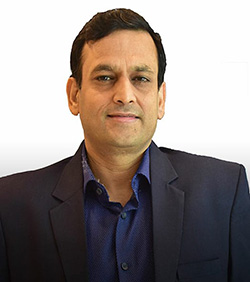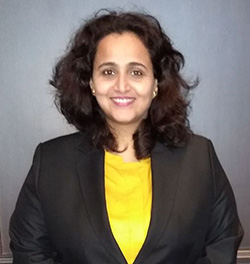
IS IT TIME FOR MONEY?

Vikas Kumar
TiE Pune Charter Member & Co-founder LoanTap
“Some start-up founders are greedy, so they wait longer than necessary to raise funds, so as to not dilute their equity, whereas some founders are fearful, and they rush in too early to raise funds” said Vikas Kumar, TiE Pune Charter Member, and co-founder LoanTap.
He adds, “it’s better to be fearful than greedy, for if you wait too long and do not raise funds at the right time, your company may die.” So, when is the right time to raise funds? How do founders get a grip on when their company is ready for money? Vikas, who has advised and invested in several companies, shares his views.
“Since the last one year, investors are not really looking at investing at lower levels. They’d rather invest larger amounts, and the logic is simple. The effort required to invest One Crore or Rs. 10 Crores is the same. Moreover, keeping track of that many start-ups is very tedious. So, investors are writing large cheques.”
What does this mean for a founder? Simply put, it means you reach out to them when you have had some traction (in terms of sales, eyeballs). “If you feel you need money at an early stage, then it’s better to seek this from family and friends. There is really no choice at early stage unless you are a FOMO (fear of missing out) company, say in AI or some such. At that stage, my advice is to get to an investor at your PowerPoint stage.”
So, if you are not a FOMO company, and you have raised enough traction, there is a market for your product/service, then it’s time to reach out to investors. Here Vikas says, “the market has certain metrics for different industries. Founders must find out at what stage of traction do investors invest in their industry”
“This they need to find out by talking to investors, reading data, talking to other founders.” So, what happens to innovators? Someone who has done something that’s never been done before and there are no standards? Says Vikas, “most start-up founders think they are unique, but often they are not. And in our situation, I think it is better to be a copycat rather than an inventor. “This is because if an investor feels there is no known metric, he will most likely dump you.”
Even though many founders do know the level at which investors will invest, they generally raise money too late. Says Vikas, “I’ve noticed that many guys will say oh, I’ll manage the next year with Rs. 5 Crores, not factoring in the cost of HR, marketing, branding, regulatory expenses and so on. Often, they will underestimate their requirement for money. It is important that investors calculate their requirement of funds taking into account all aspects of running a business.”
How is the start-up community looking at fundraising. We speak to a few to find out:

Preeti Ranadive Pandhu
Preeti Ranadive Pandhu, Founder, Data Science Lab Consulting P. Ltd.
Preeti’s company, that started two years back, is bootstrapped. “Right now we are not looking at raising funds because we want to develop a new forecasting product. This will help small companies predict demand, which they are now doing using very crude methods. Since the projects that we run simultaneously are bringing in the funds, we don’t think we will need more money. Maybe in a year and a half, we may need investors to help. As of now, we plan to manage on our own.”

Amol Ghodke
Amol Ghodke, co-founder, Credibly Fintech P. Ltd.
Started at the beginning of this year with an investment of Rs. 2 lakhs, Amol went to the investor market in August this year itself. “The Covid situation made the market slow, so we thought perhaps raising funds would help.” But Amol soon realized his mistake. “Investors need to see some traction, so now we are busy building it. We have two metrics to look at – one is the volume and the other is sales. We disburse loans to students, so we think that once we reach 1000 students and give loans worth Rs. One Crore, we should be able to raise Rs. 10 Crores.”
This money they intend to use to go to other cities like Latur, then Nashik, Mumbai. They also plan to go pan India. “We will need the money for marketing, HR and further technology development.”

Rohit Hardikar
Rohit Hardikar, co-founder Arka Fresh Juices.
Arka was founded in 2016 with the idea of providing people with fresh juice at an affordable rate. They built a pilot plant and even got sales. Says Rohit, “Since our bottles are glass, we could not target the e-commerce business. We focussed on the hospitality sector and broke even twice. After the first wave struck last year and now after the second wave.” Covid intervened and business, largely because it wasn’t e-commerce friendly, suffered. “we approached a large conglomerate and even received a term sheet, due diligence was on when Covid struck. This has put things on the back burner. We had agreed to Rs. Eight Crores that we need to spend on building a bigger plant and capacity.” Rohit plans to get back on fund infusion once the markets shake off the virus impact.
Contact us if you have a story to tell: rashmi.ghosh@tiepune.org

